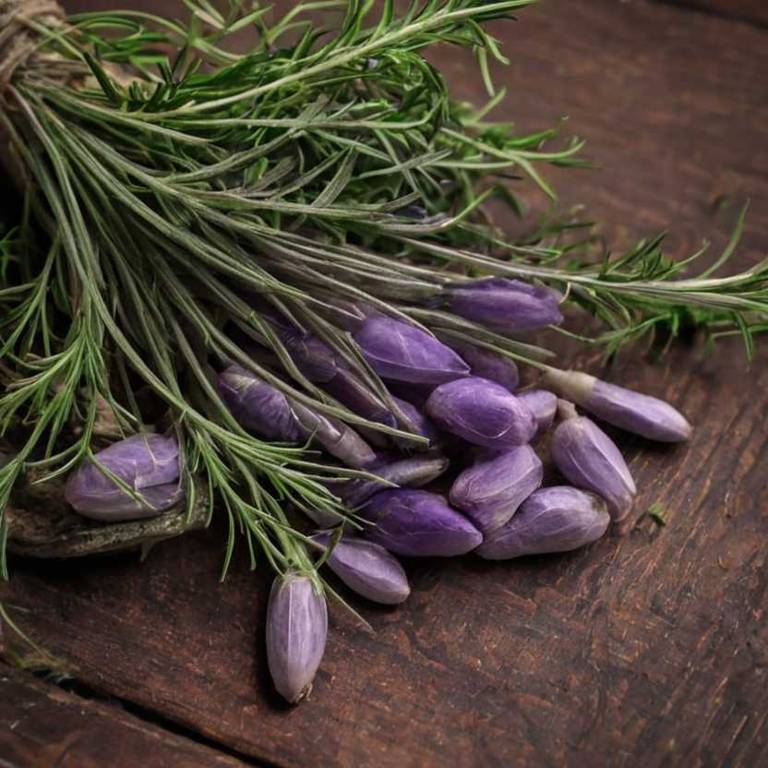Saffron Crocus (Crocus sativus)
Saffron Crocus (Crocus sativus) is a member of the Iridaceae family, native to Persian Gulf Region, Iran, and Central Asia. Traditionally, its flowers, bulbs, and stems have been used for infusions, culinary uses, and powders.
This herb is particularly valued for its sedative, tonic, and antispasmodic actions, and has a long history of use in mediterranean herbal traditions, european herbal medicine, and ayurvedic medicine.

Quick Facts / Key Information
| Common Name | Saffron Crocus |
|---|---|
| Scientific Name | Crocus sativus |
| Plant Family | Iridaceae |
| Genus | Crocus |
| Species | sativus |
| Native Range | Persian Gulf Region, Iran, Central Asia |
| Plant Parts Used | Flowers, Bulbs, Stems |
| Primary Medicinal Actions | Sedative, Tonic, Antispasmodic |
| Primary Traditional Systems | Mediterranean Herbal Traditions, European Herbal Medicine, Ayurvedic Medicine |
| Historical Preparation Methods | Infusion, Culinary Use, Powder |
Botanical Identity
- Scientific Name
- Crocus sativus
- Common Name
- Saffron Crocus
- Synonyms / Alternative Names
- Saffron Crocus Flower, Common Crocus, Saffron Flower
- Plant Family
- Iridaceae
- Genus
- Crocus
Botanical Description
- Growth Habit
- Perennial herbaceous plant.
- Height
- It typically grows to a height of 15 to 30 centimeters.
- Leaves
- Broad leaves with upper surface pale green and lower surface white, bearing distinct stomatal bands.
- Flowers
- Tubular flowers with three prominent yellow lobes, actinomorphic symmetry, and a prominent stigmatic area surrounded by three prominent staminodes.
- Stems
- Terrestrial, erect growth habit, herbaceous, glabrous surface, rhizomatous root system, with fleshy, succulent, underground stems.
Traditional Uses / Historical Use
Traditional Systems
- Mediterranean Herbal Traditions
- European Herbal Medicine
- Ayurvedic Medicine
Historical Preparation Methods
- Infusion
- Culinary Use
- Powder
- Oil Infusion
Medicinal Actions
- Sedative
- Commonly referenced as a warming sedative, in calming-focused applications.
- Tonic
- Traditionally described as a mild tonic, in general wellness contexts.
- Antispasmodic
- Historically regarded as a moderate antispasmodic, for tension-related applications.
- Carminative
- As described in traditional systems, a gentle carminative, in relation to gastrointestinal comfort.
Active Compounds
- Terpenoid
- Plant-produced compounds commonly found in essential oils and resins.
- Essential Oil
- A mixture of naturally occurring compounds responsible for plant aroma.
- Flavonoid
- Naturally occurring polyphenols that contribute to pigmentation and structural chemistry.
- Phenolic Acid
- A class of aromatic plant compounds commonly found in leaves, seeds, and stems.
Modern Research Overview
Modern scientific investigation of this plant has focused on identifying its chemical constituents and examining their properties in controlled research settings. Comprehensive study summaries will be incorporated into this section as additional sources are reviewed.
Safety & Contraindications
- General Precautions
- Some general precautions have been associated with the use of this herb.
- Contraindications
- Available information does not clearly establish contraindications for the use of this herb.
- Allergies
- Sensitivity or allergy-related effects have not been clearly established.
- Drug Interactions
- There is insufficient evidence to determine whether this herb interacts with pharmaceutical drugs.
- Toxicity
- Available information regarding the toxicity of this herb is limited.
- Pregnancy & Breastfeeding
- Information addressing pregnancy and breastfeeding-related safety for this herb is limited.
Preparation & Usage Methods
- Infusion
- Dried or fresh plant parts are infused in hot water and consumed as a beverage.
- Decoction
- Plant material is simmered in water to extract compounds from tougher parts.
- Poultice
- Poultices involve external application of prepared plant matter.
- Culinary Use
- Culinary use includes adding plant material to recipes or beverages.
- Powder
- Plant parts are dried and mechanically reduced to a powdered form.
Growing, Harvesting & Storage
Growing / Cultivation
- Soil
- Prefers loamy soil with well-drained conditions. Typically grows best in organically rich soils.
- Sunlight
- Thrives in full sun. Tolerates full sun to partial shade.
- Watering
- Prefers well-balanced moisture levels. Tolerates periodic dry conditions.
Medical Disclaimer
The information provided on this page is for educational and informational purposes only. It is not intended to diagnose, treat, cure, or prevent any medical condition. Always consult a qualified healthcare professional before using any herb for medicinal purposes.